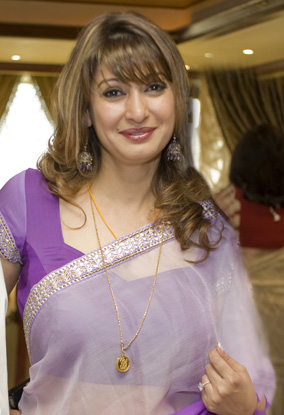
There is something sickening and violating about the way Sunanda Pushkar’s life and death are being played out round the clock on our TV screens. Her voice, images, letters, life and death make for compulsively watchable television. One channel even played an “exclusive” mobile camera footage of the suite where her body was found. Someone talked about how her dress sense and hair were laughed at in the elitist Delhi circles. Vir Sanghvi, a few hours into her death, attributed her end to her own instability. There was little compassion in his voice and even Barkha Dutt took this time to show us once again how responsible she is as a news journalist because she did not take Mrs Tharoor’s statements seriously and even ignored a 4 am sms from her because let us face it, she had better and more important things to do. The questions surrounding her are up in the air right now but every news channel had a different take on her death. Was it a conspiracy? A suicide? An accidental overdose? What were the friends saying about their marriage and her death? His friends? Her friends? Their friends? Discretion is not a popular word these days though my respect for Rajdeep Sardesai went a few notches up when he stopped Sagarika Ghosh from sharing details of a conversation she had had with Sunanda. But it won’t end here, right? Her autopsy was videographed. Her funeral was a public affair too with cameras hungrily focussing on Tharoor’s face through out.The indignity of it all.
**
And somehow I remembered that Suchitra Sen had died too the same day and not one soul, not even the pervasively hungry media, knew a thing about even a day in her life in the past 30 years. Or what she thought about this issue or that or if she was happy, angry or sad with life or how her last rites were conducted. And then realised how easy it is today to get a front row seat in the lives of others and see what they think, do, eat, wear. Who they love, despise. Communication once had filters. We chose to share what we wanted with people we knew. Now sharing is a mass exercise and a click can share one person’s hell with an anonymous mass. Sharing is no longer a two way conversation over a cup of coffee, a late night phone call with a 12 am friend, a confessional letter in your hands, a hug. It is a tweet. A status update. A technology driven addiction where you feel you are the star of a 24 hour show the whole world is tuned into.
**
Relationships are hard enough. Life is a tough business especially if you want to make sense of it but when private conversations are put out there, how can you ever put the genie back into the bottle and get your privacy back? Hate is no longer a recognisable reason, a face you know, a familiar name. It is an online abuse compacted in a tweet, messages that land in your inbox, a joke trending at someone’s expense. Hate pages on Facebook and twitter wars..there are many ways to get even with someone or target someone. Bullying is now a virtual disease gone viral and nothing is sacrosanct especially if someone chooses to not keep personal things personal.
**
Social media was about filling the gaps in our communication with those we know and those we want to know but at some point Facebook and Twitter became brightly lit performing spaces full of noisy spectators. It is not all bad but it is not all good and like everything else in life, we must know how to strike a balance and how much of our life must be put out there and how much to ourselves. Not many of us knew Sunanda but the illusion today is that we knew everything about her illnesses, her depression, her unravelling marriage, her insecurities. The little pieces are creating together a picture maybe even she would not have recognised. I feel for this life wasted. A life she obviously loved with a passion. Like a friend of hers said, “It is not easy being an independent woman. You always pay a price and she paid a heavy one.” I feel for her son because he knew perhaps more than any of us what she really was like. There is nothing more to wonder except that dignity is the basic right of every person, living and dead and at some point, we must stop treating a human tragedy as a spectator sport. And put some filters back in place when we talk about the lives of others and also ours.
**
Reema Moudgil has been writing for magazines and newspapers on art, cinema, issues, architecture and more since 1994, is a mother, an RJ , an artist. She runs Unboxed Writers from a rickety computer , edited Chicken Soup for The Indian Woman’s soul, authored Perfect Eight and earns a lot of joy through her various roles and hopes that some day working for passion will pay in more ways than just one. And that one day she will finally be able to build a dream house, travel around the world and look back and say, “It was all worth it.”







How true! Here’s something I watched recently, bringing out the perspective from that of an individual, and the myth that sharing defines ppl’s existance – http://www.upworthy.com/loneliness-illustrated-so-beautifully-you-will-need-to-tell-someone?g=2